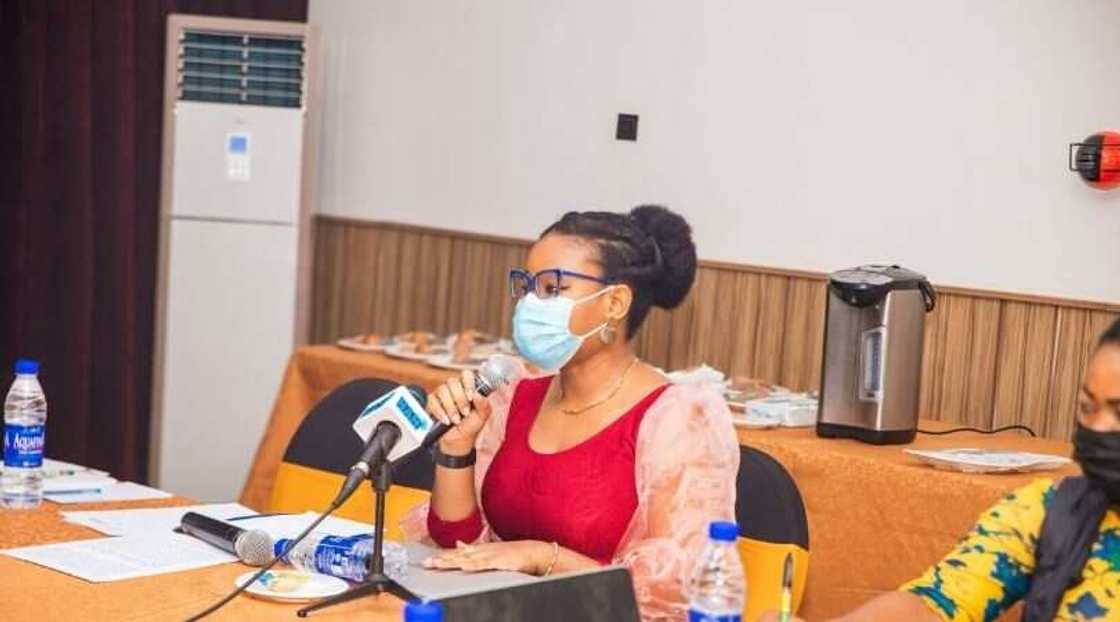Civil Society Organisations Call for Amendment of CAMA Act 2020
- Pressure is mounting on the Nigerian government over the controversial CAMA Act 2020
- There seems to be mounting opposition against the Act which was passed into law in August 2020
- A group of Civil Society Organisations say the Act threatens the existence of non-profit and media organisations
PAY ATTENTION: Join Legit.ng Telegram channel! Never miss important updates!
Yiaga Africa and other Civil Society Organisations have kicked off advocacy against the Company and Allied Matters Act 2020 in a bid to ensure further legislation.
To ensure their advocacy comes to fruition, a stakeholders roundtable on CAMA 2020 was held in Abuja and attended by a Legit.ng reporter.
The roundtable brought together stakeholders from Corporate Affairs Commission, Academics, and CSOs to identify gaps in the CAMA 2020 assented to by President Muhammadu Buhari in August 2020.
During the meeting, Yiaga Africa presented its analysis of the Act where it identified certain provisions capable of derogating from citizens’ constitutionally guaranteed rights, including how the Act affects non-state actors especially NGOs, religious and traditional institutions.
The analysis revealed that CAMA 2020 has been rightly hailed as a huge improvement on the 1990 version as it promotes the ease of doing business and seeks to promote accountability in certain sectors hitherto left at the whims and caprices of certain individuals.
However, the analysis also revealed noticeable poor drafting of some sections of the Act, provisions Yiaga Africa noted is capable of derogating from citizens’ constitutionally guaranteed rights.
In her remark, Yiaga Africa’s director of programs, Cynthia Mbamalu said the CAMA 2020 was passed without due advocacy and thus it came to citizens as a surprise.

Source: Twitter
PAY ATTENTION: Install our latest app for Android, read the best news on Nigeria’s #1 news app
Her words:
“The CAMA 2020 has some provisions that we believe threaten the existence of non-profit organisations under which CSOs and even media organisations exist.”
She categorically made reference to some sections under part F of the Act which she stated is a potential threat to the existence of non-profit organisations.
She however said:
“The fact a law is passed doesn’t mean it cannot be amended and we believe there is always the opportunity to review our law in tandem with democratic principles, that they protect and guarantee rights and they truly ensure effective planning for the future of our democracy.”
She said the meeting provides an opportunity to further engage the legislative arm of government to further review the Act.
Legit.ng had earlier reported that the Christian Association of Nigeria (CAN) has dragged the federal government to court to challenge the legality or otherwise of the Act.
The Christian body said it went to court to adjudicate on some provisions which its association is not comfortable with.
The case with suit No FHC/ABJ/CS/244/2021 is between the Incorporated Trustees of CAN, Corporate Affairs Commission, and minister of industry, trade, and investment which was filed before the Federal High Court, Abuja.
Recall that two prominent Nigerian human rights activists, Femi Falana and Chidi Odinkalu, a former National Human Rights Commission chairman, recently kicked against sections of the CAMA Act 2020.
Both Falana and Odinkalu vehemently rejected some provisions of the legislation on the grounds that they violate the fundamental rights of not just Nigerians but also reduced the freedom of civil society organisations.
Source: Legit.ng




